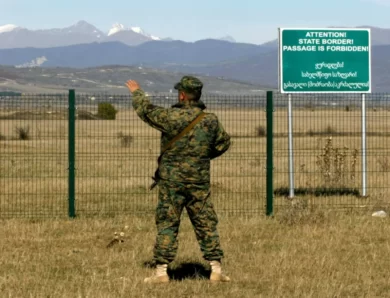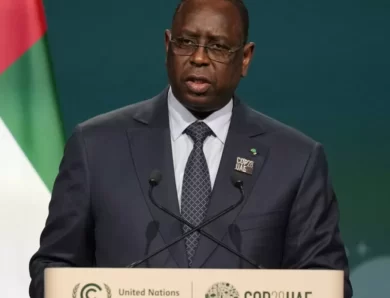
Information battleground against a backdrop of espionage: the Sergei Skripal case
Salisbury, 4th of March 2018, Sergei Viktorovich Skripal and his daughter Yulia Skripal are found unconscious, slumped on a bench. The United Kingdom immediately strikes back and publicly finds Russia guilty of poisoning, triggering an unprecedented diplomatic crisis*. In this article, Classe Internationale looks at how the Russian and British press waged a bloody war of information on the Skripal affair.
Sergei Skripal, a former Russian military officer, had been playing on both sides since 1995, when he began working for the British intelligence, four years before being officially recruited by the GRU — the Russian foreign military intelligence agency — in 1999. After he was apprehended for his betrayal in Moscow in 2004 and sentenced to thirteen years of prison for high treason, he was eventually granted asylum in the UK as part of a spy-swap. Why and how he was poisoned with “Novichok” — a nerve agent historically created by Russians — still remains unclear. What would be the point for Russia to murder him and sparking such a major diplomatic incident? Was Sergei Skripal detaining any new intelligence that he would be likely to disclose to London? Sergei Skripal is said to have written a letter to Vladimir Putin in order to be forgiven and allowed to come back to his motherland. Nonetheless, this story was refuted by the Kremlin [1]. Was London afraid that one of its agents would reconnect with the foe, repleted with golden top secret informations? Is there any other stakeholder in this clutter? Too many questions are left unanswered. The poisoning was classified as “attempted murder” whereas the chief executive of the Porton Down defence research laboratory Gary Aitkenhead stated, on the 3rd of April 2018, that the lab could not determine if the nerve agent came from Russia or not [2]. Nevertheless, Great-Britain severed diplomatic relations and the outcome is massive: from now on, a combined total of 342 diplomats have been sent back to their home countries. From the 14th of March to the 27th of March, 153 Russian diplomats have been dislodged at the behest of the US, the UK, Ukraine, Canada and many other European Union members; against 189 American, Canadian and European agents evicted by Russia [3].
The crisis was rekindled when two British citizens non-related to the case, Dawn Sturgess and her partner Charlie Rowley were poisoned with the same nerve agent at the end of June 2018 in Amesbury, only a few miles away from Salisbury. As with Skripal, the British government charged Russia with the attack. Since then, two suspects have been identified by the British government, publicly introduced as Ruslan Boshirov and Alexandre Petrov, allegedly Russian spies from the GRU wearing fake names. Footages show them wandering around near the Skripals’ dwelling. The identities of the two men are very much debated because Russia keeps asserting that they are mere civilians who were visiting their Brit fellow-beings. On the one side, Russia Today broadcast a video presenting the two men as regular Joes exalting the beauty of their trip [4]. On the other, Bellingcat disclosed the award Putin would have had attributed to Anatoliy Chepiga (a.k.a. Ruslan Boshirov) a long time ago for being a valiant colonel in the GRU [5]. In any case, each party accuses each other of leading a campaign of disinformation, fostering the crisis and reinforcing the rift that lasts since the Crimea crisis in 2014 and since Russia entered the Syrian conflict in 2015.
This affair indeed occurs against the backdrop of many stakes concerning the relations of Russia with the rest of the world. First, as the United States and the European Union have already imposed economic sanctions against Russia because of the Skripal affair, it may be asked what would be the aftermath if the UK enforced new sanctions. Would it be a way for the UK, and even for Europe, to strengthen its position against Russia in the Syrian conflict, especially regarding the use of chemical weapons? Eventually, could the economic interests of the UK be put at risk as Russian investors represent an important part of the financial assets in British banks? Many issues on the topic remain unanswered.
Contrasting ways to depict the investigation between the Russian and British media
Mainstream British media tend to follow the official line by conveying Theresa May’s heated accusations against the Kremlin. Thus, the articles published the recent months by The Guardian abundantly quote Theresa May official statements, such as: « It was almost certainly also approved outside the GRU at a senior level of the Russian state. Accordingly this was part of a wider pattern of Russian behaviour that persistently seeks to undermine our security« . Russia hides « the truth by pushing out a deluge of disinformation, which only pointed further to its involvement ». Then, she promised further action to combat the GRU and against Russia generally. She announced the future arrest of the two Russian suspects: “we will take every possible step to detain these two individuals, to extradite them and to bring them to face justice here in the United Kingdom”. The responsibility of the Russian government is then taken for granted: “novichok attacks was clearly authorised by Moscow” or again, when the Prime Minister orates about deploying tools against “the threat posed by the GRU” [6] — here the use of the present passive voice is quite relevant.
On the other hand the Russian press tends to claim the Kremlin’s innocence and that contrary reports are part of a manipulation of information against the country. The television network Russia Today and the news agency Sputnik have been the chief purveyors of this narrative. The presentation of the main page on the Skripal affair on Russia Today website is quite representative. It goes: “An investigation was launched, and many news media outlets claimed that the Skripals were poisoned by Novichok nerve agent, originating from Russia. Yet, no proof has been given for these allegations. Find the latest updates on the Skripal case on RT.” [7]. These lines convey the Kremlin’s hawkish stance, namely, avouching that no relevant proof has been publicly announced or transmitted to Russian police, whereas the Kremlin is willing to assist in the investigation. This kind of information handling is characteristic of the ways both media choose to cope with factuality.
What about the legitimacy given to Mr. Vladimir Putin’s opinion on the matter?
On the first day of the Russian Energy Week in Moscow, on the 3rd of October 2018, Putin bluntly commented on the Skripal case saying that: “Some media outlets are pushing through a theory that Mr. Skripal is some sort of a rights activist. He’s plainly a spy. A traitor to his homeland. There’s such a thing – being a traitor to the homeland. (…) Imagine, if there’s a person in your country who betrayed it. How would you treat him?”. And then: “Putin said that Russia has repeatedly urged the UK to provide Moscow with materials on the Skripal case, yet the requests have been squarely ignored.” [8]. Without intending to subscribe to oversimplification, it can be argued that Russian media tend to type the Russian president’s words in bold font type whereas on the English side, his words are indisputably reprehended on a moral plan. In The Guardian, it says: “Putin’s remarks seemed intentionally provocative and insensitive (…) Addressing the death of the woman, Dawn Sturgess, he said: “You want to tell me that we also poisoned some homeless person? What is this nonsense?” [9], mentioning the second poisoning, at the end of June, causing the death of Dawn Sturgess, who was formerly homeless. Ever since, such comments have been worsening the situation between the two States by ultimately ushering the British government to say that such verbalisations only authenticate the liability of Russia in the affair.
What about the way the diplomatic crisis is perceived in foreign media?
Le Monde Diplomatique, as an example, tried to offer a historical overview of the crisis by recapping the whole diplomatic background of the relations between Russia and the UK. The journalist writes: “According to Foreign affairs minister Boris Johnson, the “dangerous behaviour of president Vladimir Putin” constitutes the “red wire” linking the poison attempt of the former Russian secrets services colonel refugee in the UK to all the previous crimes of Moscow: “annexation of Crimea’, “cyber-attacks in Ukraine”, “the Bundestag hacking”, “the interference in several European elections’”, “the leniency to the atrocities perpetrated by Assad in Syria”. Let’s summarise: M. Putin is capable of doing it, therefore he’s guilty” [10]. All in all, according to the French editor, it may have been the broader jittery and unquiet context, before substantive evidence, that drove the UK to assess there is no other explanation but the Kremlin’s culpability.
When paying attention to the foreign countries opinions, we must admit that the French journal is not an outcast on the matter. China called for the easing of tensions when the Chinese Foreign Ministry spokesperson declared that “relevant countries” must “find out the truth in the Skripal case, discard their Cold War mentality and refrain from confrontation” [11]. Once again, history and context are pointed out.
The attack on the Chemical Weapons Watchdog
On the 4th of October 2018, Netherlands reported their security services had foiled a hacking attempt on the 13th of April, targeting the headquarters of the Organisation for Prohibition of Chemical Weapons in The Hague. Four Russian spies have been caught red-handed hacking the data, in a vehicle riddled with electronic devices, located in a car parked nearby. The Dutch security services immediately sent them back to the British border. Within the four walls of the OPCW the investigation on the poisoning of Skripal and his daughter was being carried out; as well as the investigation on the use of chemical weapons in the attack in Douma, Syria, which the Moscow-backed regime in Damascus was charged with. Last but not least, in the laptop that belonged to one of the four Russians, activities related to the investigation of the shooting of the Malaysia Airlines Flight 17 in 2014 have been assertedly discovered. In the eyes of the British government, this bungled plot is only another proof that Russia is guilty and has since been contributing to the rise of the geopolitical tensions. The charges come as part of coordinated accusations by the UK, the United States and Canada, singling out Russia as a “pariah state” [12], purportedly involved in several cyber-attacks throughout the world. Moscow sharply responded that the West was touched by “spy mania” [13].
After almost one year, the affair continues
While Skripal and his daughter are still being held in a secret place and protected by the British services, a new arm wrestling has been going on. On the 21st of January 2019 the Council of the EU designated the two GRU officials, Anatoliy Chepiga (a.k.a. Ruslan Boshirov) and Alexander Mishkin (a.k.a. Alexander Petrov) and the Head and Deputy Head of the GRU, Igor Kostyukov and Vladimir Alexseyev “responsible for the possession, transport and use in Salisbury during the weekend of 4 March 2018 of the toxic nerve agent “Novichok” by officers from the GRU” [14]. The sanctions consists of a travel ban to the EU and an asset freeze. Here again, this decision was pointed out by the Russian Foreign Ministry, Sergey Lavrov, as a new splash, which, according to him, is pursuing “domestic policy goals”, that is to say aiming at blinding the international society about the last vicissitudes of the Brexit crisis. However, the Council decision is not specific to the Skripal case: it covers the proliferation and use of chemical weapons in general. Thus, the Russian agents are named among other colonels involved in the Syrian crisis and members of the Syrian Scientific Studies and Research Centre (SSRC) accused of having, in one way or another, oiled the wheels of the development of chemical weapons in Syria. The fact that both Russians and Syrians are condemned in a joint statement on the grounds of the use of chemical weapons is symbolically significant. This pattern might be used to purposely remind people of the Douma outbreak on the 7th of April 2017, further to which both Syrian and Russian governments had been rebuked, as Russia was — and still is — a fervent support of the Assad regime, itself accused of having orchestrated the attack. Accordingly, such statement by the Council underlines to what extent this diplomatic crisis can only be incorporated within the broader context.
In the end, within this war of information, it seems that factuality is sometimes given by the stakeholders as an incredibly malleable concept. It appears that the diplomatic war will be won by the more persuasive speaker, equipped with the best poignant wordings-loaded pistol.
Louise Clark
*The last diplomatic crisis of this kind was the Litvinenko affair in 2006: “Litvinenko affair will damage our relationship with UK, warns Russia”, 05/12/2006, The Independent
Sources:
[1] “Moscow rejects claim Sergei Skripal wrote to Vladmir Putin asking to be pardoned”, 24/03/2018, Skynews
[2] “Did Boris Johnson make false statements about Russia being responsible for Salisbury never agent attack?”, Benjamin Kentish, 05/04/2018, The Independent
[3] “Skripal case diplomatic expulsions in numbers”, 03/04/2018, Aljazeera
[4] Russia Today, 13/09/2018
https://www.rt.com/news/438350-petrov-boshirov-interview-simonyan/
[5] “Skripal Suspect Boshirov Identified as GRU Colonel Anatoliy Chepiga”, 26/09/2018, Bellingcat
[6] « Salisbury attackers were Russian military intelligence, says May”, 05/09/2018, The Guardian
[7] Russia Today, main page
https://www.rt.com/trends/sergei-skripal-russian-intelligence/
[8] “Skripal is a ‘traitor & scum”, not some rights activist — Putin”, 03/10/2018, Russia Today
https://www.rt.com/news/440211-putin-calls-skripal-traitor-scum/
[9] “Vladimir Putin calls Sergei Skripal a scumbag and a traitor”, 03/10/2018, The Guardian
[10] “Permis de tuer”, Serge Halimi, April 2018, Le Monde Diplomatique
https://www.monde-diplomatique.fr/2018/04/HALIMI/58575
[11] “China warns against ‘Cold War mentality’ in Skripal case”, 03/04/2018, China Daily
http://europe.chinadaily.com.cn/a/201804/03/WS5ac36eb3a3105cdcf65160ce.html
[12] ”West accuses ‘pariah state’ Russia of global hacking campaign”, 04/10/2018, Reuters
[13] “Russia hack attacks: Revelations from ‘spy mania’”, 05/10/2018, DW
https://www.dw.com/en/russia-hack-attacks-revelations-from-spy-mania/a-45769711
[14] Council decision of January 21st of 2019 published in the Official Journal of the European Union
https://eur-lex.europa.eu/legal-content/en/TXT/PDF/?uri=CELEX:32019D0086&from=en





No Comment